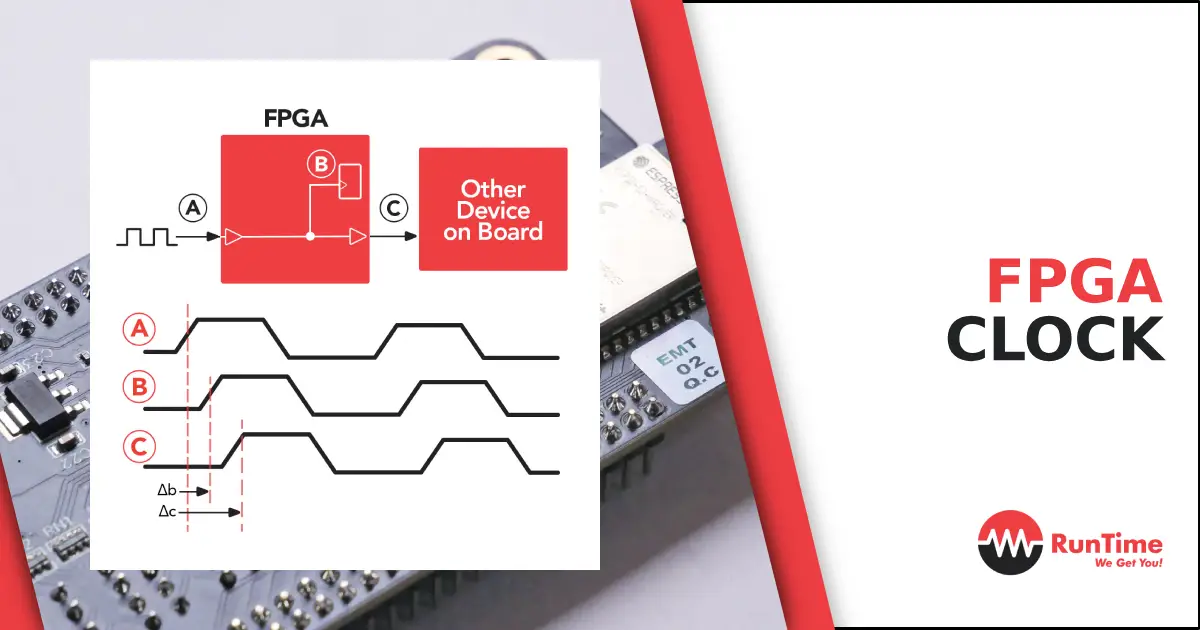In FPGA (Field-Programmable Gate Array) design, the significance of clock management cannot be overstated. Clock signals act as the heartbeat of these programmable devices, dictating the pace at which operations unfold. In this comprehensive guide, we delve into the intricacies of FPGA clock management, shedding light on crucial aspects that drive optimal performance.
Understanding the FPGA Clock
Clock Frequency and Its Impact
Clock frequency stands as a pivotal factor in FPGA performance. The adage “the faster the clock, the better the performance” holds true, but this oversimplification belies the nuanced considerations at play. Achieving the right balance is key, as excessively high frequencies can lead to undesirable consequences.
Clock Domains: Navigating Different Speeds
FPGAs often operate in multiple clock domains, each with its unique speed requirements. Managing these diverse domains demands meticulous attention to detail. A well-structured clock domain crossing strategy ensures seamless communication between different parts of the FPGA, preventing synchronization issues.
Clock Networks: Interconnecting the Heartbeat
Clock networks play a vital role in ensuring uniform distribution of clock signals. A well-designed clock network minimizes skew and jitter, enhancing synchronization across the FPGA. Robust clock routing and the strategic placement of clock buffers contribute to a reliable and efficient network.
Strategies for Effective FPGA Clock Design
Clock Tree Synthesis: Crafting the Backbone
Crafting a robust clock tree is paramount. Clock tree synthesis involves the generation of a hierarchical structure that distributes clock signals across the FPGA. By optimizing this structure, we enhance signal integrity and reduce clock skew, paving the way for efficient data processing.
Clock Gating: Power-Efficient Operations
Implementing clock gating mechanisms proves instrumental in minimizing power consumption. By selectively enabling and disabling clock signals, we achieve power savings during idle or less critical operations without compromising overall performance.
Skew Management: Achieving Synchronization
Clock skew, the variance in arrival times of clock signals, poses challenges to synchronization. Leveraging advanced skew management techniques, we mitigate these challenges, ensuring precise timing alignment across the FPGA.
Clock Constraints: Guiding the Implementation
Defining clock constraints is a strategic step in FPGA design. These constraints guide the synthesis tools, specifying timing requirements and relationships. Accurate constraint definition ensures the FPGA operates within desired performance parameters.
Best Practices in FPGA Clock Implementation
Timing Constraints: Setting the Standard
Defining accurate timing constraints is a linchpin of successful FPGA design. Through meticulous constraint specification, we communicate to the synthesis tools the desired performance parameters, optimizing the implementation process.
Clock Regions: Tailoring Performance
Dividing the FPGA into clock regions allows for granular control over performance optimization. By assigning specific clock domains to designated regions, we fine-tune performance metrics, addressing the unique requirements of diverse sections within the FPGA.
Clock Signal Integrity: Ensuring Reliability
Ensuring the integrity of clock signals is a foundational aspect of FPGA design. Signal quality directly impacts the stability and reliability of the entire system. Robust clock routing and careful consideration of signal paths contribute to maintaining signal integrity throughout the FPGA.
Conclusion
In conclusion, clock management emerges as a critical determinant of success. This guide has provided a comprehensive overview, from understanding the fundamentals to implementing advanced strategies. Armed with this knowledge, you are poised to unlock the full potential of FPGA clocks, ensuring your designs stand at the forefront of efficiency and performance.
Hire the Best Engineers with RunTime Recruitment
Our expert team of engineers-turned-recruiters offers in-depth knowledge of technical recruiting in the engineering industry. If your company is looking to recruit highly skilled engineers worldwide, contact us today and we will do the sourcing for you. Or if you’re an engineer looking for new opportunities, you can check RunTime Recruitment’s job site for job vacancies.









